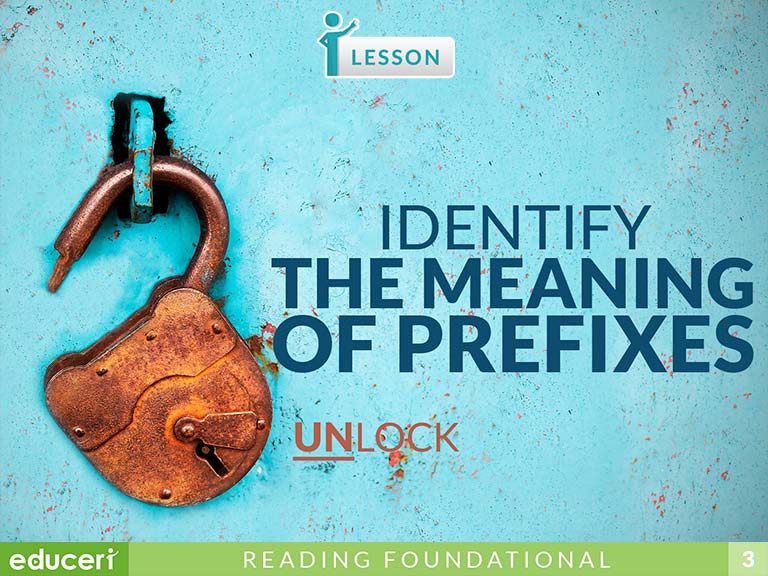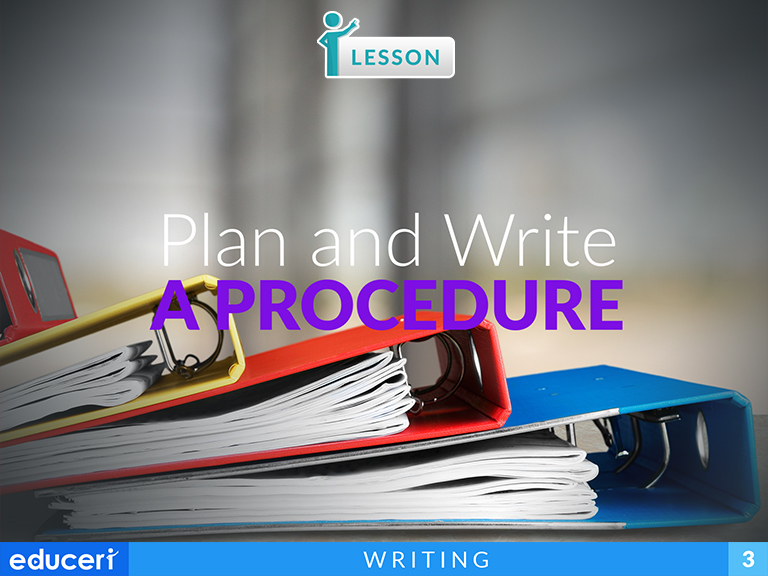Special Program: Writing Workshop (explanatory 3-5)
Writing Workshop (explanatory 3-5)
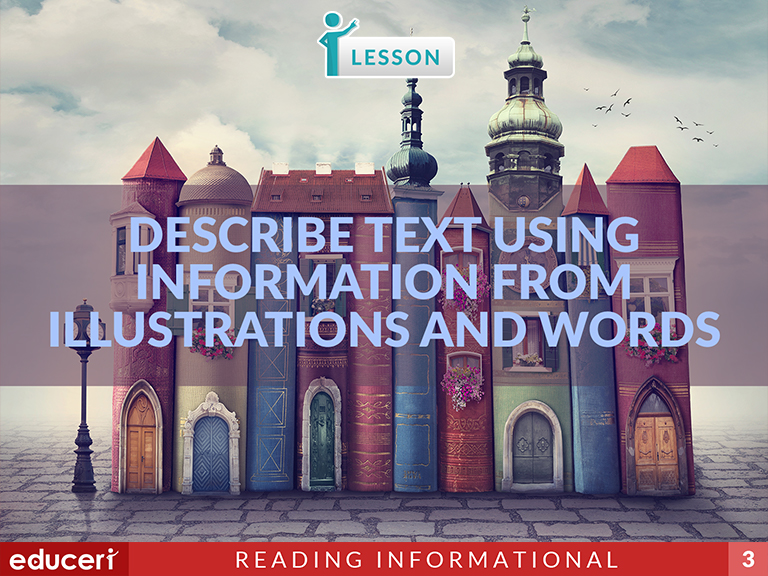
Describe Text Using Information From Illustrations and Words
This reading informational text lesson explains how pictures add information to a text. In this lesson, students will describe where particular kinds of information are located within a text and its illustrations.
Share This Lesson
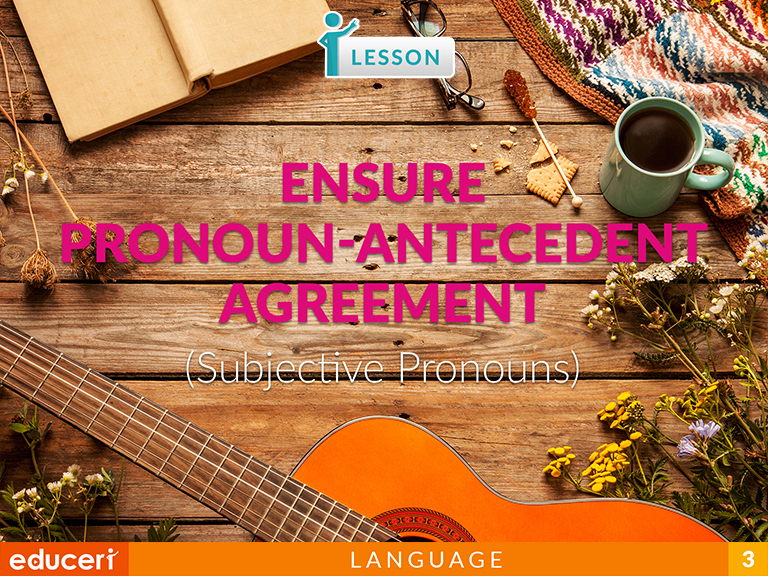
Ensure Pronoun-Antecedent Agreement - Subjective Pronouns
This language lesson focuses on ensuring the pronoun-antecedent agreement of subjective pronouns. The lesson includes research-based strategies and strategic questions that prepare students for assessments.
Share This Lesson
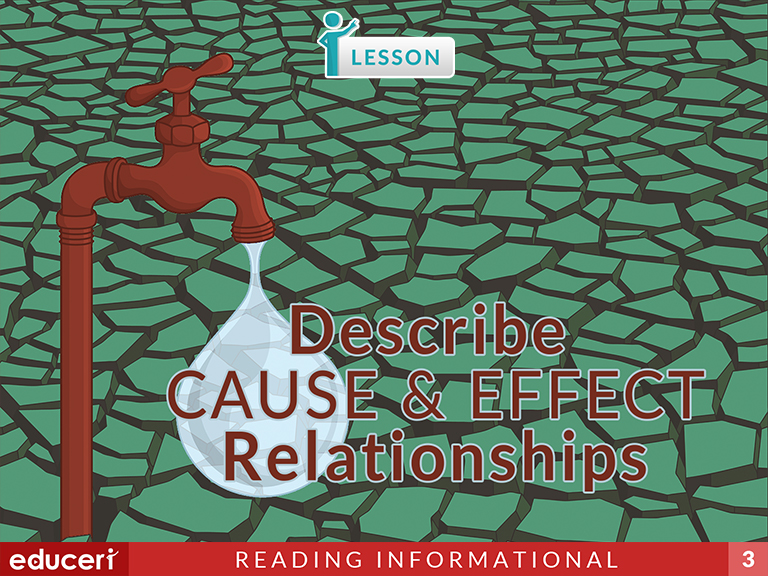
Describe Cause & Effect Relationships
RI.3.2 Determine the main idea of a text; recount the key details and explain how they support the main idea.
RI.3.3RI.3.3 Describe the relationship between a series of historical events, scientific ideas or concepts, or steps in technical procedures in a text, using language that pertains to time, sequence, and cause/effect.
This reading comprehension lesson focuses on describing the relationship between cause and effect. The lesson includes research-based strategies and strategic questions that prepare students for assessments. In this lesson, students use clues from the text they read, as well as prior knowledge to determine which event is the cause and which is the effect. In addition to the lesson, there are four pages of Independent Practice and review with questions modeled after current adaptive testing items.
Share This Lesson
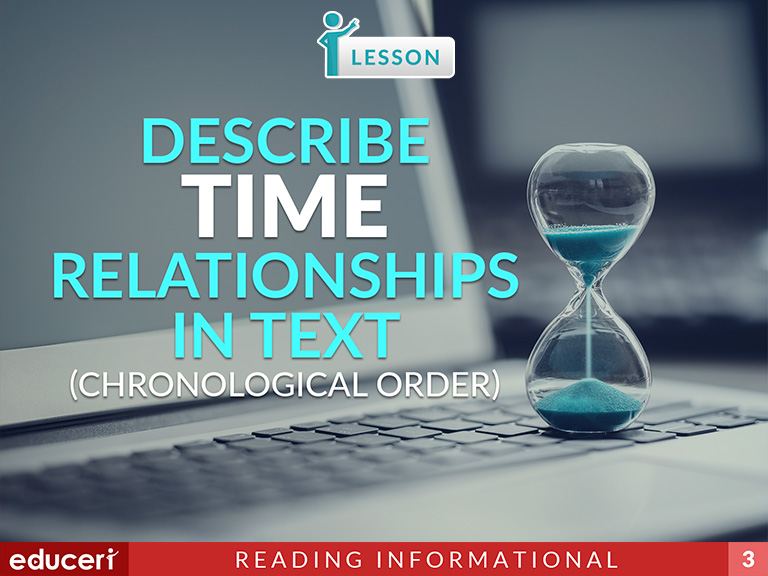
Describe Time Relationships in Text (Chronological Order)
This reading informational text lesson focuses on time relationships in text. The lesson includes research-based strategies and strategic questions that prepare students for assessments. In this lesson, students will identify time clue words (month, day, year, time, age) and then identify the time order of events in a text.
Share This Lesson
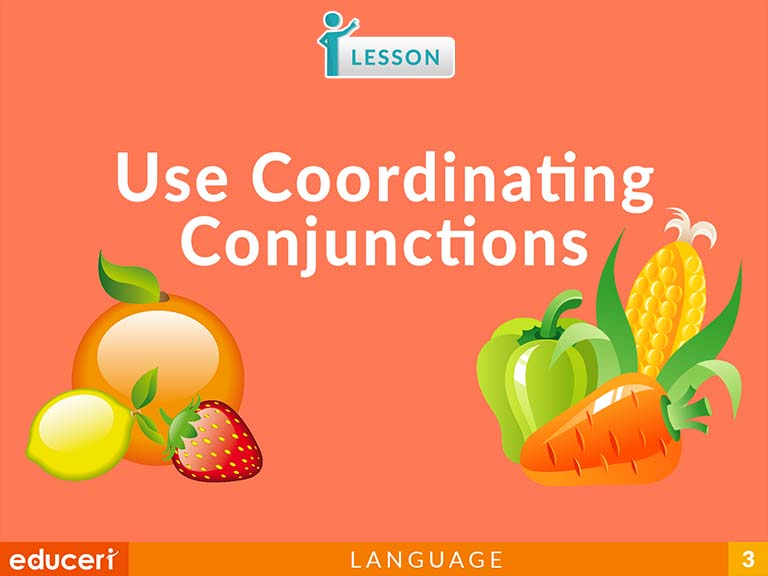
Use Coordinating Conjunctions
This language lesson covers coordinating conjunctions. The lesson includes research-based strategies and strategic questions that prepare students for assessments. In this lesson, students will practice using conjunctions to join words based on the relationship between words. It will be helpful if students are already familiar with complete simple and compound sentences prior to this lesson.
Share This Lesson
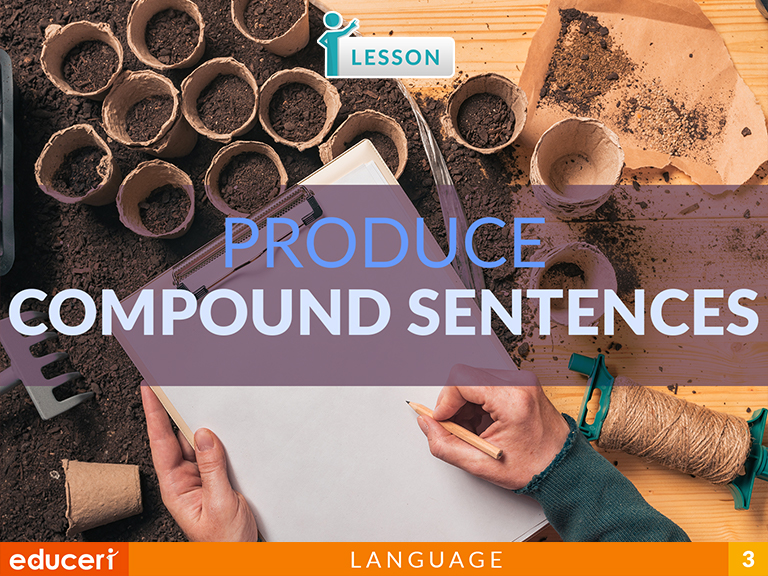
Produce Compound Sentences
This language lesson focuses on producing compound sentences using a word bank to describe a picture. The lesson includes research-based strategies and strategic questions that prepare students for assessments. In addition to the lesson, there are four pages of Independent Practice and review with questions modeled after current adaptive testing items.
Share This Lesson
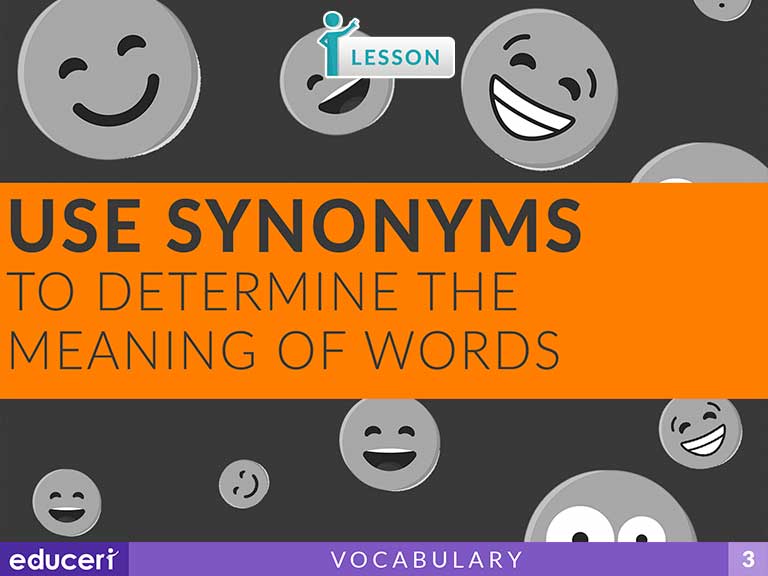
Use Synonyms to Determine the Meaning of Words
Share This Lesson
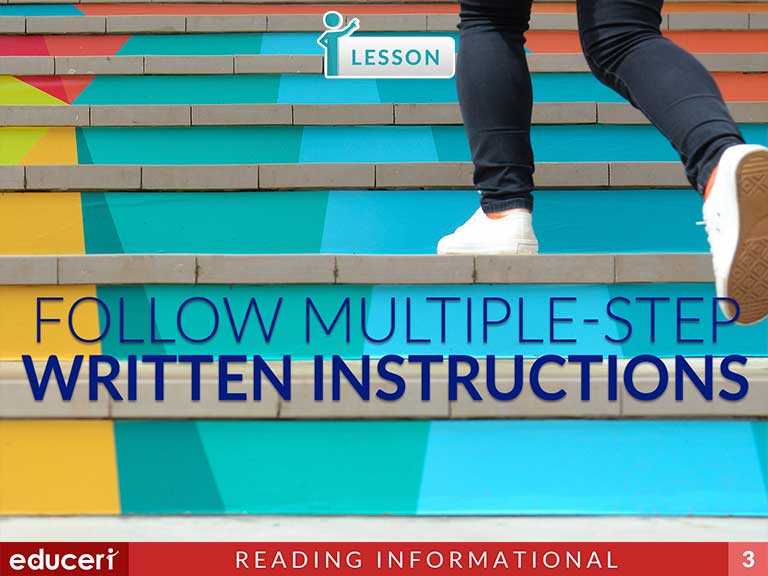
Follow Multiple-Step Written Instructions
This reading comprehension lesson focuses on following multiple-step written instructions. The lesson includes research-based strategies and strategic questions that prepare students for assessments. In this lesson, students use directions containing more than one step to answer questions about how to make or do something. In addition to the lesson, there are four pages of Independent Practice and review with questions modeled after current adaptive testing items.
Share This Lesson
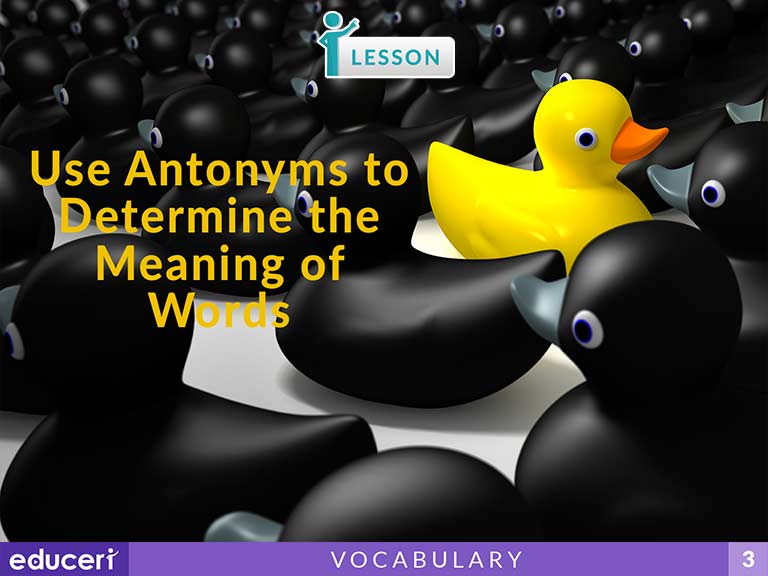
Use Antonyms to Determine the Meaning of Words
This reading vocabulary lesson focuses on using antonyms to determine the meaning of words. The lesson includes research-based strategies and strategic questions that prepare students for assessments. In this lesson, students use contrast signal words (but, not, however, while, and yet) to identify antonyms and determine the meaning of words. In addition to the lesson, there are four pages of Independent Practice and review with questions modeled after current adaptive testing items.
Share This Lesson
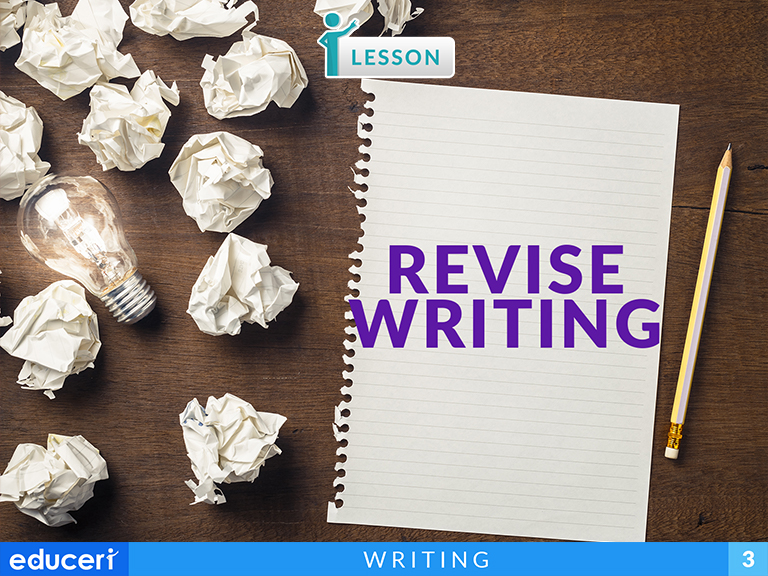
Revise Writing
This writing lesson focuses on students revising written work to make it better. In this lesson, students will read a text with the main idea identified. Then, they will add or delete sentences that support or don't support the main idea.
Share This Lesson
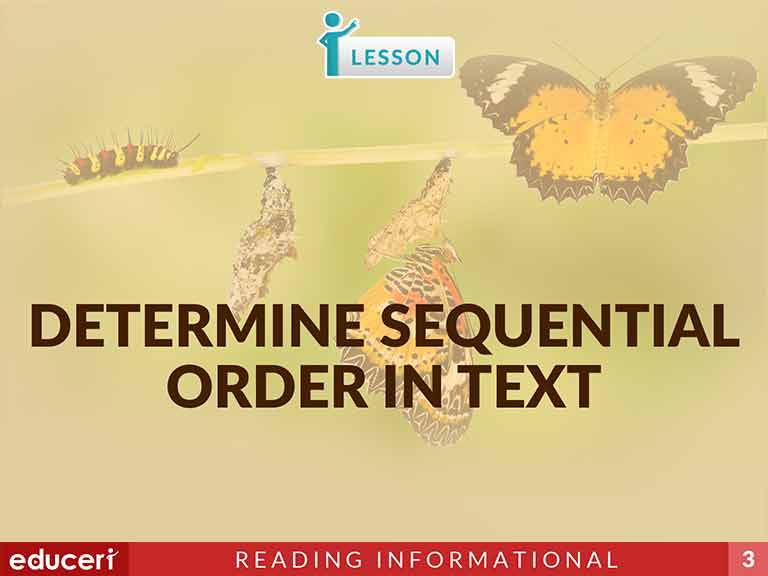
Determine Sequential Order in Text
This reading informational text lesson that describes the sequence relationships between ideas in a text. The lesson includes research-based strategies and strategic questions that prepare students for assessments. In this lesson, students will identify clue words (such as, first, last, next, etc.) and then answer questions that determine the relationship between ideas.
Share This Lesson
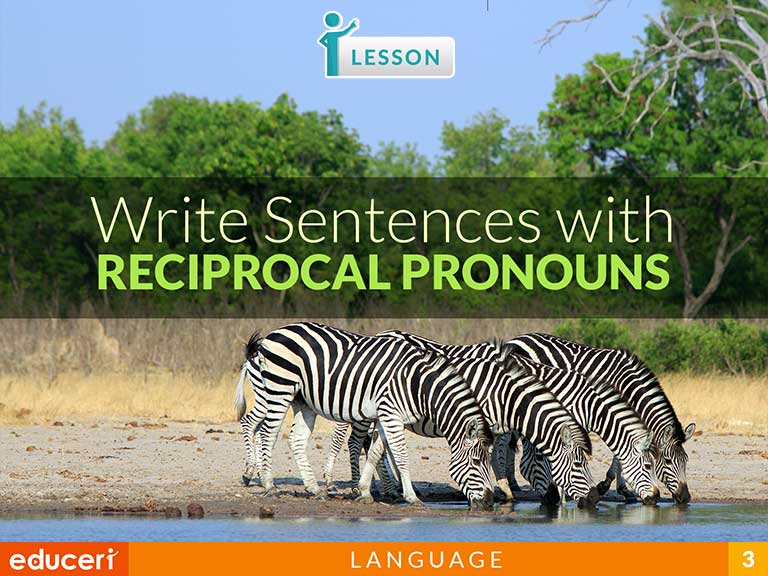
Write Sentences with Reciprocal Pronouns
This language lesson covers the use of reciprocal pronouns (each other and one another). The lesson includes research-based strategies and strategic questions that prepare students for assessments. In this lesson, students will learn when to use "each other" versus when to use "one another".
